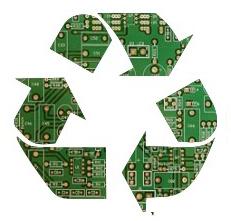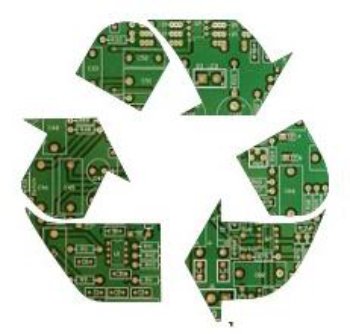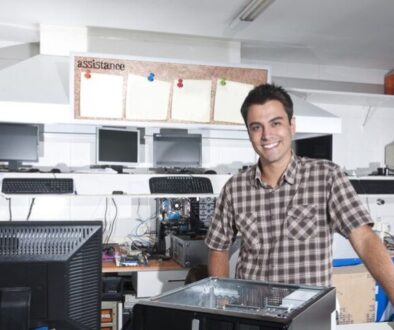Proper Options for Computer & Server Disposal

Reuse. The term “reuse” refers to giving (or selling) computers to someone or some other organization to use. Computers are often sold on a secondary market, given (or sold) to employees, or donated to charitable organizations and schools. Selling computers on a secondary market can be a great way to make extra cash and keep that system out of the landfills. The most popular options include selling directly through refurbished resellers. Regardless of the method, an organization must carefully assess whether the employee time and effort necessary to sell these computers is worth it. In most cases, the value of a used computer is far less than managers perceive. The original purchase price should be viewed as a sunk cost, leaving as the only relevant consideration the marginal benefit versus the marginal cost.
There are several advantages to giving (or selling at a significant discount) older computers to employees. In an age of job-hopping, this additional benefit may reflect a commitment by management to employees, garnering greater employee loyalty. Employers should be careful, in documenting the exchange, to avoid creating a taxable benefit.
Donating computers to charitable organizations and schools provides a company with tax benefits that may exceed the expected realizable value from selling the computers via a secondary market.
Recycle. Depending on the state, recycling computers can be simple or difficult. In states that have bans on landfilling (California, Massachusetts, and Minnesota), recycling programs are well organized. In most states, however, finding a place to recycle old computer equipment can be difficult. Moreover, reputable recycling companies usually charge a fee for pick-up and the requisite documentation to show that the computers were appropriately recycled. The savings from using a nonreputable recycler, however, are generally not worth the attendant risk if the computers are not properly disposed of.
Recycling is the best option for computers that are extremely old or broken, especially monitors. In states that have voluntary recycling programs, local municipalities are in charge of setting up convenient drop-off locations for computers. Some municipalities have monthly, quarterly, or annual computer recycling days in which they provide for the collection or pick-up of old computer equipment.
Trade-in. Most major computer manufacturers and resellers have trade-in programs. Recent proposed state legislation has forced manufacturers to implement trade-in programs. For example, California has proposed legislation that would require manufacturers that sell any computer within California to develop, finance, and implement an “e-waste recovery system” for the collection, handling, transportation, processing, recovery, reuse, and recycling of the devices sold by that producer.
Considerations
Regardless of how old servers and networking equipment are disposed of, there are several important steps to take before handing them over. First, remove the hard drive or reformat it. Simply deleting files does not prevent them from being recovered from the hard drive; sometimes, files can even be retrieved from reformatted drives. Next, evaluate software license agreements to determine if they preclude transfer of the software along with the computer.
It is important to remove all company insignia and inventory control tags from computers to be disposed of. Removing company insignia and control tags can hamper hackers from identifying to which company any recovered information belongs. Contact a Greentec Systems representative for more information.





